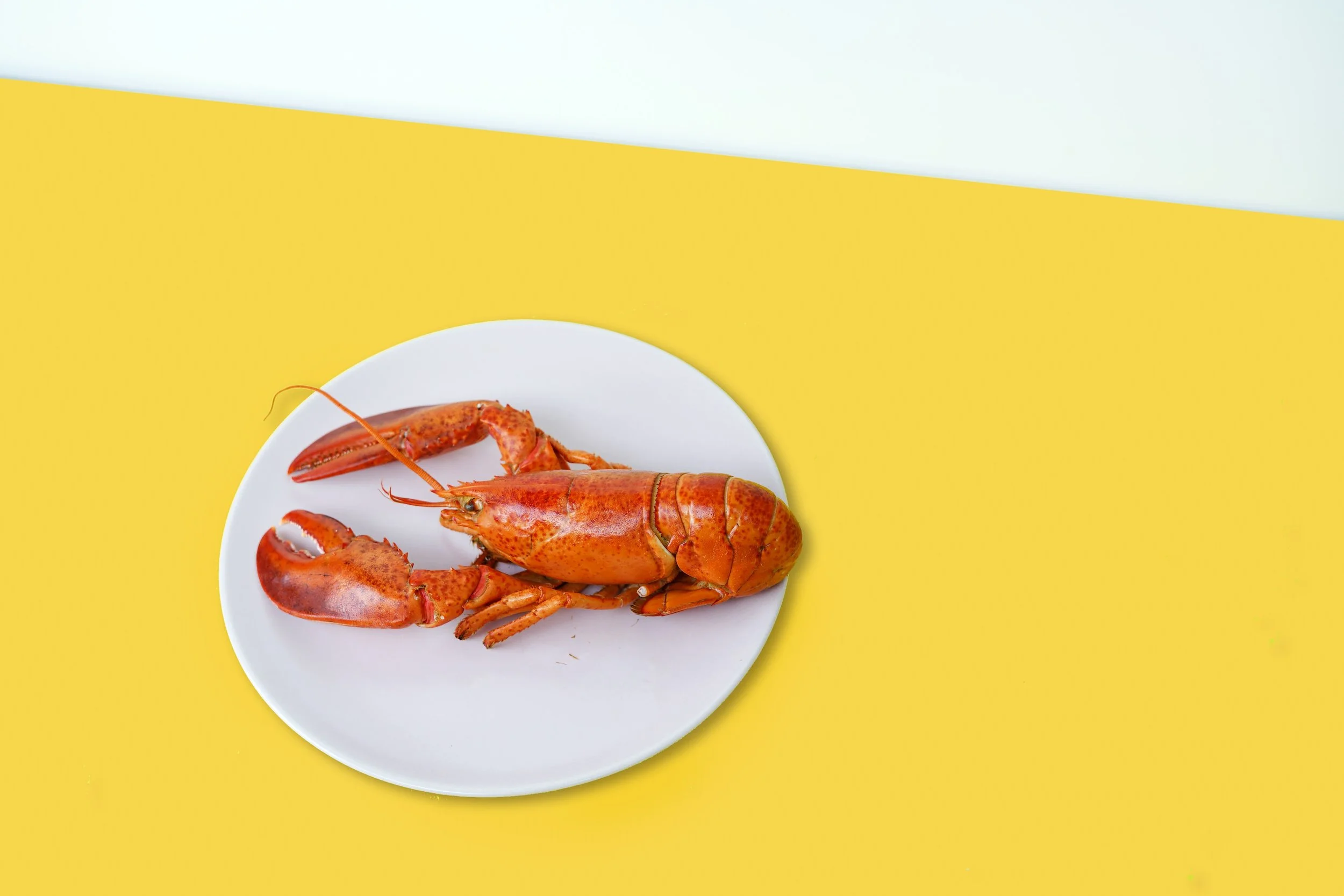Sex and Lobster

Usually Rhys will leave the doors open for me. He lives in a tall blue terrace with flowerpots on the way up the front stairs. I text him from the bottom of the street, push open the front doors and go up to his room in the eaves of the house. He will be waiting for me in just his boxers and a blindfold. The ropes are laid out, the condoms, the lube, but we will pretend this is a surprise. We’ll have sex, slowly, warm in the collected heat of the whole building. We’ll chat afterwards, catch up on each other’s lives and work. It’s easy, it’s friendly. The sex is good.
Today he greets me at the door. Today I am twisted up in knots. Today I am a rape survivor.
So much of our understanding of the survivor population comes from thinking of them as just that- a population. But the truth is that sexual violence happens to individuals, it falls into lives in an individual way. When you are raped suddenly it’s not just the psychological trauma, but the admin. It’s getting the sick note from work if you can’t bear to go back. If you become agoraphobic someone still has to take the children to school. If your partner assaults you two days before your A-levels you will probably still have to take them.
It falls into people’s sex lives too, which might already be rich and full or fraught and unfulfilling. The sexual self can fracture beyond all recognition.
I’d spent my early teens walking the knife edge of a dangerous, libido crushing depression so that when sexuality happened to me it was all at once, the summer I was sixteen I stopped self harming and started masturbating instead.
I went from the first exploration of my body, to coming out as bisexual, to having sex all within the space of ten weeks. I didn’t fit the typical male-pattern arousal either; where my friends talked about orgasming too quickly I could rarely do it even alone; the idea that I might get there with a partner seemed out of reach. I persevered. At first I chose magnetic partners with huge personalities so that they wouldn’t notice that I all but disappeared in the bedroom. Then, slowly, I searched for people who were kind and lively, people with whom I might relax.
At university I cultivated a small pool of lovers whom I saw on a semi-regular basis. I went to workshops, immersed myself in sex positivity and shared that with my partners.
The communication was good and the sex itself was better. My favourite sensation was not in the bedroom, but after. Walking home after sex, my body tired and relaxed, my skin lit from the inside. Sex connected me to the world and made me love it.
Then came the rape.
I won’t go into those few weeks after; the pills and the patronising and the gut-knotting shame. The fear of men’s bodies, including my own. As a queer person I’d already spent time in this kind of arena, bareknuckled against self-disgust, and even if I hadn’t won, I had at least carved out a space to be free in. In the wake of the rape I had to understand that all that work could be taken away, that I could be that numb, vulnerable fifteen year old again. But as I surfaced from the initial trauma so did my sex drive.The tool I’d used to connect me with the world was now also the site of tremendous pain, but I still wanted to use it.
This shouldn’t be surprising. We know that around 1 in 4 women and 1 in 6 men experience some kind of sexual abuse during their lifetimes; for people within the LGBT+ community these numbers are even higher. We do not typically forego sex forever. Eventually the majority of survivors will step, trembling, back into the bedroom. And since sexual violence happens to most people early in life that means that most of us, regardless of our gender identity or orientation, will sleep with a survivor at some point. We may not know it when we do, but we are being trusted with something precious in those moments.
I trusted Rhys. My reasons for being there were all wrong - I’d decided that being able to have sex was synonymous with being ‘over’ the rape and set myself a six month deadline to do so. I wasn’t ready. I was more than not ready, in fact; I was terrified but I hid it. Rhys agreed to see me.
“I might burst into tears at any point, ok?” I warned him.
We started in the living room, which I’d never seen. I didn’t want to start in a room with a bed. He made me tea.
I could taste toothpaste on him when we kissed. That was fine, but when he touched me I had to concentrate hard not to flinch. Those first five minutes were horrible; the moment where he put his hand on my penis made me want to shrivel up. I don’t remember much more than that, except that afterwards I thanked him and he seemed
surprised. He let me have a shower. The soap was mint-scented and I scrubbed until my skin was red. Rhys called me a lobster.
I waited to be over the rape. I waited on the bus home, in the hallway of my building, at my front door. Inside I sat down on the sofa and waited to be ok. I wasn’t. If anything I felt scoured out inside.
I’d proved to myself that I wasn’t unfuckable, but I’d also bulldozed past my own boundaries. It felt like an echo of the rape itself. I had to leave the house again after an hour because I didn’t trust myself alone with the kitchen knives. It was summer but cold and the seagulls were out in force. At the Italian restaurant on the corner of my road someone had ordered lobster thermidor in its shell; I caught a glimpse of shattered red as I walked past.
I didn’t go near sex again for another six months.
Rhys would have been horrified at the idea that I’d been retraumatised by having sex with him. I know that because in the years since I’ve met versions of him; mostly men but not always, struggling to be partner not just to a survivor, but also the trauma that comes with them. “Making things worse,” is always a huge fear. Some of them were struggling with their own abuse histories too, and found the collective bed nearly buckled under the weight.
I don’t know that Rhys wasn’t a survivor. And if he was, how did the whole episode make him feel?
As funding for survivors’ organisations is cut or channelled into criminal justice this is the kind of situation which goes unsupported. I shouldn’t have had to bulldoze over my own boundaries to discover where they are. Rhys shouldn’t have had to guess at what my reaction might be. And I was lucky; I may have been triggered to high heaven but I was also in the room with a man who treated me with humour, kindness and support. I smile when I think of him and I think of him whenever I see a lobster.
Being a good partner to a survivor is a learned skill, not a personality trait and being a good partner as a survivor takes work too. Rhys did his best, but neither he nor I knew how to read the signs my body was giving that it wasn’t ok. My work as an activist has taught me that there are many people willing to do the work of learning to be good lovers to the survivors in our communities, but they need support, they need education and they need space to be honest about their fears. How we make that happen in the current political climate I don’t pretend to know. But I’ll say this: it’s not just down to survivors to make sure it does.





